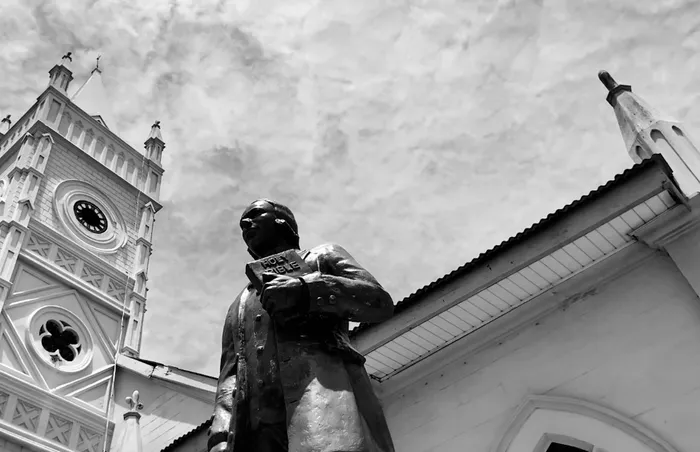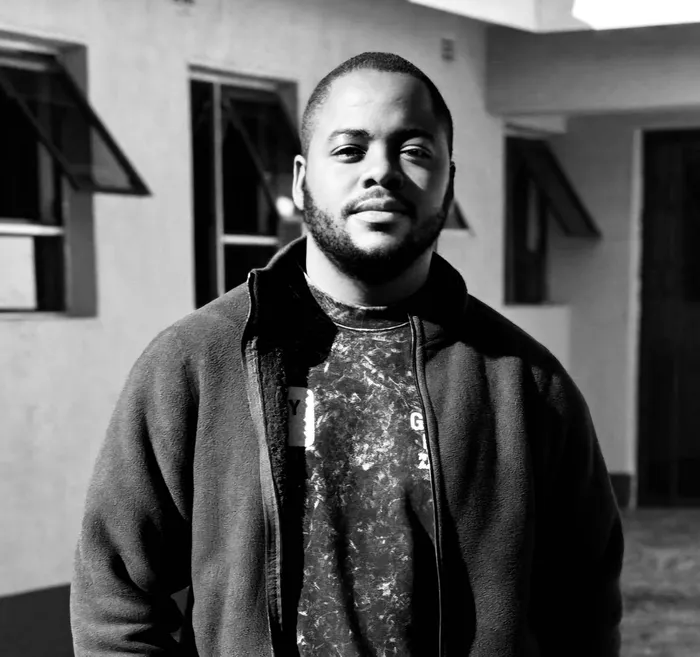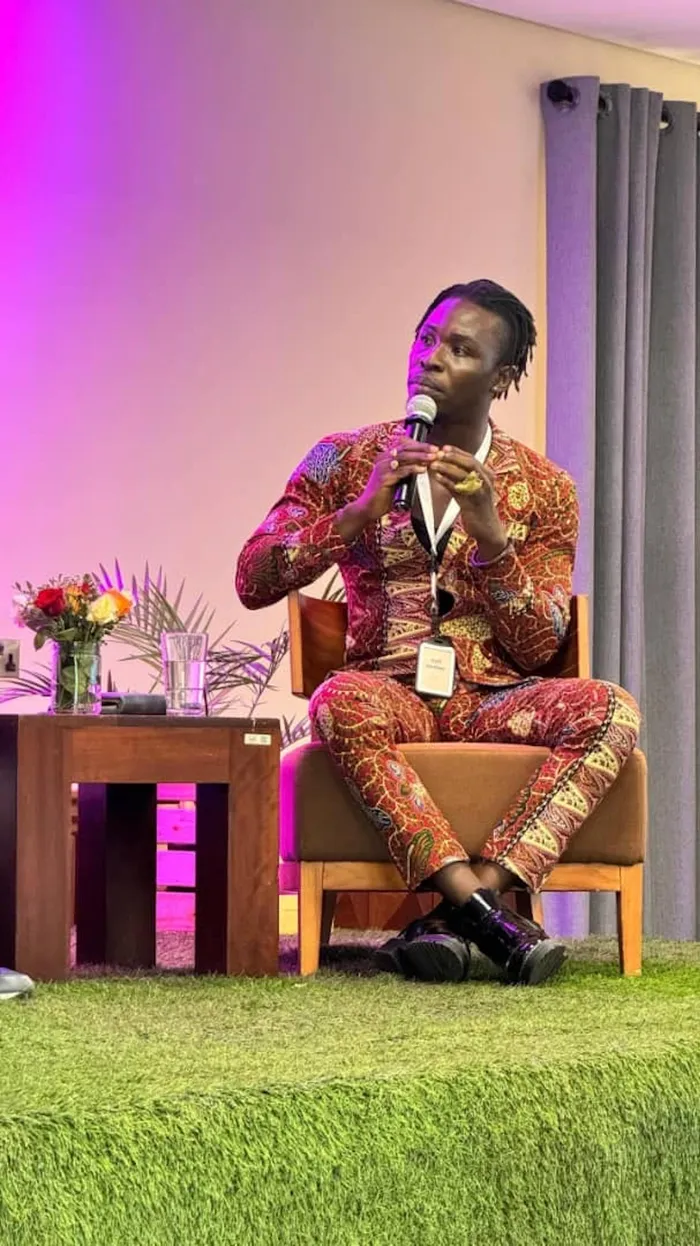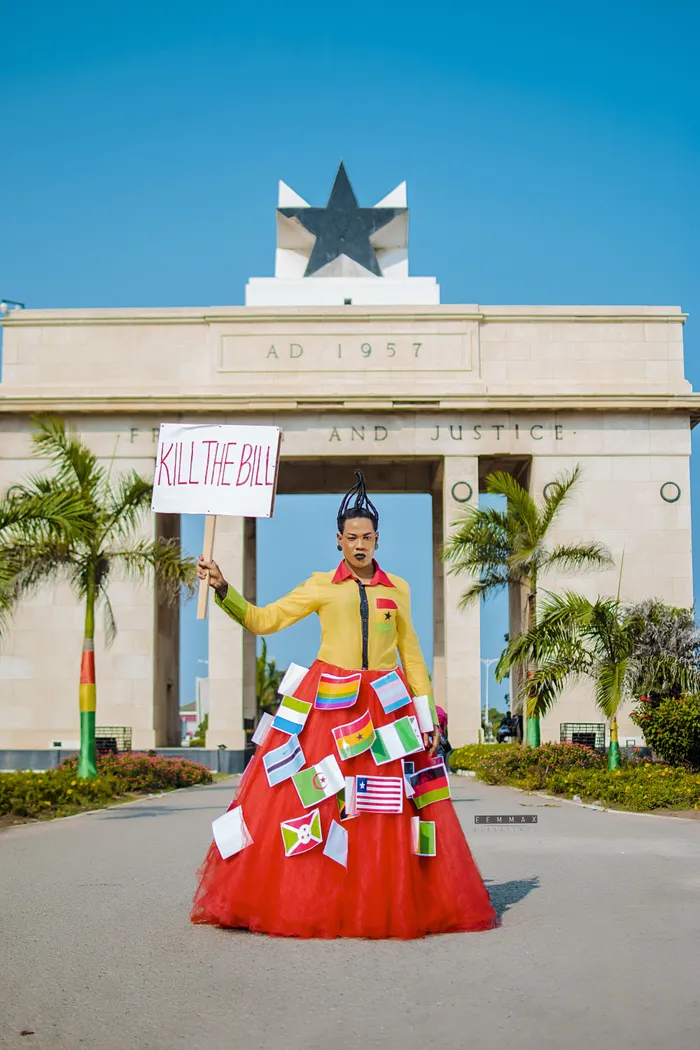Online and unafraid: LGBTQIA+ Africans push back against colonial-era hate

In numerous African countries, including Ghana (above) and Zimbabwe, colonial-era anti-homosexuality laws continue to do great harm to LGBTQIA+ communities. In a push against these inherited laws and attitudes, queer Africans are utilising social media as a tool to foster greater acceptance.
Image: Carl Collison
Golden Moyo* is a lay preacher in rural Zimbabwe. In 2018, after decades of hiding his sexual orientation, Moyo came out to his family and friends and his parish as gay.
Attitudes to sexual and gender minorities in Zimbabwe are highly conservative. Those found guilty of consensual same-sex sexual activity could face up to one years imprisonment and a fine. The southern African country’s anti-homosexuality law was first introduced by the British during its colonisation of Zimbabwe.
According to Human Dignity Trust, the country has noted “consistent reports of discrimination and violence being committed against LGBTQIA+ people in recent years, including assault, sexual violence, harassment, blackmail, and the denial of basic rights and services”.
Moyo’s decision has not been without consequence. News of his sexuality soon “went viral… (with) people deliberating upon it”, he says. There was also a protest at the church’s headquarters.
Says Moyo: “They were saying things like this is against our culture. This is against our religion. This is against our laws…They say it is strange. It is not part of us and did not originate from our own people. (That) it’s a Western thing. When the noise started, (with) people protesting, you really need people who stand up to say, ‘No, this thing is not Western’. It's our own thing. It has always been in our midst.”
For Moyo, as with an increasing number of LGBTQIA+ persons across the country, social media is an essential tool in a continued push for a break from the narrative that homosexuality - and queerness, more broadly - is a Western import.
Moyo’s social media accounts on Facebook, Instagram, TikTok and X (formerly, Twitter) has a combined following of just under 10 000 people. He also uses Clubhouse “for the (weekly) LGBTQIA+ fellowship”.
Moyo says he first realised the power of social media during the Covid-19 pandemic. “We could not gather as Christians, so we used to worship via social media. I realised that this is a thing that can quickly spread the message to others…I thought of it as a way that my voice can also be heard.”

Tanatswa Gumbo, communications officer for the country’s largest queer rights organisation, Gays and Lesbians of Zimbabwe, says LGBTQIA+ people “definitely have become more visible on social media”.
Image: Supplied
Tanatswa Gumbo, communications officer for the country’s largest queer rights organisation, Gays and Lesbians of Zimbabwe (GALZ), says LGBTQIA+ people “definitely have become more visible on social media”.
“LGBTQIA+ persons, particularly activists, have really been visible and have really become more outspoken in terms of challenging conservative attitudes towards LGBTQIA+ people. Especially the claims of homosexuality being un-African; not being Christian,” says Gumbo.
Research conducted by Princess Sibanda and Gibson Ncube found that, for queer Zimbabweans, online “spaces represent a powerful act of resistance, a way for queer Zimbabweans to claim their right to exist and express themselves…. It’s like they’re sending love letters to the world, saying that queer love is just as important and beautiful as any other kind of love.”
Zimbabwe is, of course, only one of numerous African states to have inherited homophobic laws and attitudes as a result of colonisation. The end of colonial rule has, however, seen some countries (such as Uganda, Nigeria, Kenya and Namibia) place added restrictions on the rights of LGBTQIA+ persons.
Ghana is one such country. The West African state inherited its first anti-homosexuality law during British rule. Section 104 of the country's Criminal Code of 1960 - seen largely as “an after-effect of the colonial era” - carries with it a sentence of up to three years’ imprisonment for men found guilty of consensual same-sex relations.
Ghana’s latest anti-LGBT law, the Promotion of Proper Human Sexual Rights and Ghanaian Family Values Bill (commonly known as the Anti-LGBT Bill), is particularly draconian and has been described as “brutal, harsh, and unjust”.
In 2021, Angel Maxine, Ghana’s only openly transgender musician and queer rights activist, penned a song, titled Kill the Bill, in protest against the Anti-LGBT Bill. In addition to using her music as a tool for awareness-raising, Maxine also relies heavily on social media to try and effect change.
“If social media was available…during the colonial days, I'm sure a lot of people would have been educated by now, and we would (not be in) this era that we are in,” Maxine says, in reference to the increasing queerphobic rhetoric sweeping across the continent. “Because even though some of us are on social media, we are still living in our colonial days; still carrying the colonial thinking. But there are also people who are using social media who have broken free from this colonialism. In Africa, we have made use of social media positively to educate people.”
Maxine is now living in Berlin, having fled Ghana as a result of persecution based on her gender identity and her queer rights activism. The distance from her home country makes her rely on social media even more.
“Sometimes when the grounds become very hard and difficult for us to meet in person, social media is where we can meet. I am currently in Germany, but I'm communicating with people in Ghana through social media.”

Alex Kofi Donkor, the executive director of LGBT Rights Ghana, says LGBTQIA+ Ghanaians are creating social media content that challenges the narrative that queerness is a Western import.
Image: Supplied
Alex Kofi Donkor is the founder and executive director of LGBT Rights Ghana. “I would say most of the mobilisation and most of the engagement at the initial stages (of establishing LGBT Rights Ghana)] was through social media. Even as of now, most of the mobilisation is done via various social media platforms,” says Donkor.
Aside from activists utilising social media for policy and attitude reforms, there are also individual members of Ghana’s LGBTQIA+ communities who, Donkor says, are “putting content out there that challenges the status quo and challenges so many thoughts that Ghanaians have around LGBTQIA+ issues…that it's a Western import”.
As could be expected, given the repressive contexts in which this content is created, there are downsides to proudly sharing pro-LGBTQIA+ content.
A recent example of this was when a queer South African undertook the social media campaign, #ShowGhanaLove. Ostensibly meant as a show of solidarity with queer Ghanaians, the campaign had the opposite effect, as anti-queer politicians used the resultant public outrage to add pressure on the Ghanaian government to expedite the passing of the Anti-LGBT Bill.
Says Donkor: “People tend to react quickly when (LGBTQIA+ content) is openly or obviously put out there. People tend to react in a very negative way.”

Ghanaian human rights activist, Angel Maxine, sees social media as an integral tool in raising awareness.
Image: Eemmax Experience
Angel Maxine is nonplussed by negative comments. “Social media is a safe space for me, even though the comments and all those things aren't 100% safe, it is a safe space for me,” she says.
Social media, she adds, resulted in what she sees as her biggest success as an activist: the collaboration with fellow musicians, Wanlov the Kubolor and Sister Deborah, which led to her song, Wo Fie.
“Wo Fie means ‘your home’,” Maxine explains. “We all come from homes, whether (we are) LGBTQIA or not. A queer person could be your brother, could be your sister. So we just have to love, respect and accept queer people for who they are. Religion is not our culture. The Bible is not our culture. The only culture that has been imported to Africa is hate.”
As to whether she says a point at which she might rely less on social media as a tool for her activism, Maxine says firmly: “No, no. I don't think I see that happening.”
Back in his home in rural Zimbabwe, Moyo echoes the same sentiment.
“You know,” he sighs, “to get the church to accept us, we have attended the meetings, the synods, the meetings in the archdiocese, the councils, but it was of no use…So, there's no other way, since we have been blocked on top. So, we are saying this is the time to make our voices heard…Maybe changes may come…Our people still believe it's a Western influence. A taboo in our culture. Yet, we are saying it’s our own thing. So, we will keep on fighting, no matter how hard it gets.”
* Not his real name
* Carl Collison is a journalist, photographer, filmmaker, and researcher. He founded and runs Beyond the Margins, a platform dedicated to producing LGBTQIA+-related content from across Africa.
Related Topics: